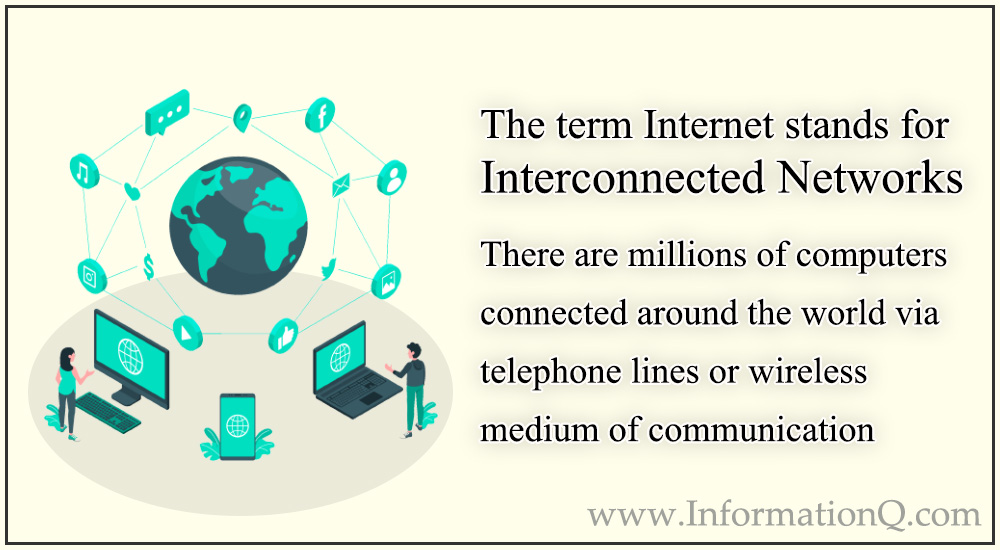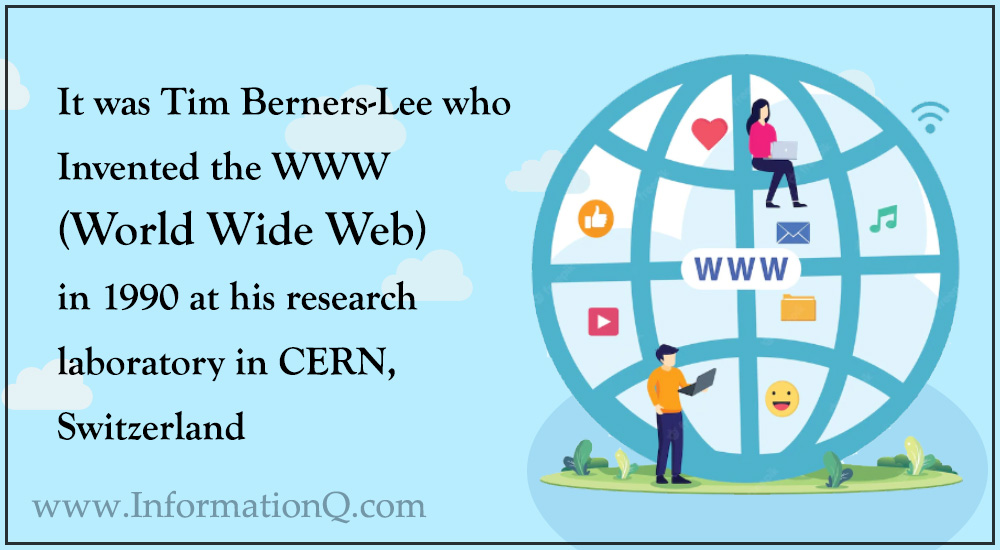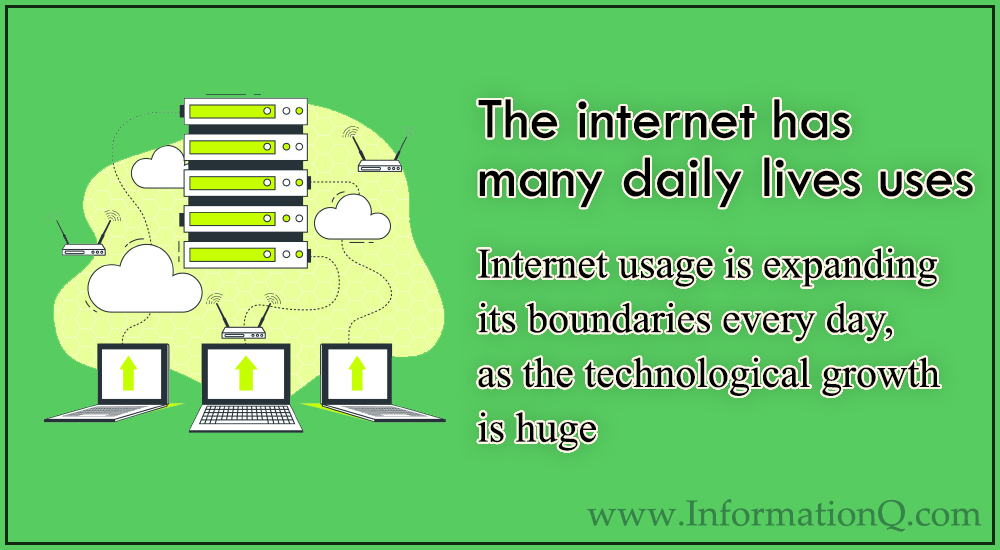What is the Internet?
Internet is a network of computers used worldwide by millions of users for communication purposes. It is a system of networks, websites, or web pages used daily for communication across great distances and various computer platforms.
History of Internet
Internet was first brought into use by the U.S. Department of Defense’s Advanced Research Project Agency (ARPA) in 1969 for the sole purpose of communication amongst them in case of any emergency war situation. Eventually, the scientist fraternity gradually used the ARPANet for their research work. But still, then, the internet was not in everyday use among the general public as a standard way of communication was not there. In the 1970s, Bob Kahn published his research at ARPA, which later evolved into Transmission Control Protocol (TCP) or Internet Protocol (I.P.), the two main protocols of the International Internet Protocol Suite. In 1983, the scientists officially established TCP/IP, and the birthday of the internet was on 1st January 1983. In 1986, the National Science Federation (NSF) of the U.S. set up interconnectivity among several universities of the United States. Thus, the United States made the emergence of computer architectures such as Domain Name System (DNS) and TCP/IP official. At the same time, along with the USA, Australia also started to adopt the new Internet system. In 1990 the first internet, ARPANET, was officially decommissioned. Several private connections and commercial entities came up across the United States, thus removing the restrictions on the use of the internet among the general public and for commercial purposes.
Who invented the WWW?
It was Tim Berners-Lee who invented the WWW (World Wide Web) in 1990 at his research laboratory in CERN, Switzerland. The World Wide Web was convenient because linking any information system to hypertext documents was very easy and was accessible from any node on the computer networking system. Then in the mid-1990s came the wave division multiplexing system (WDM). Along with it, the invention of fibre optic cables made a revolutionary impact on the technology of the internet world wide. With this invention, instant communication via electronic mail, instant messaging, Voice over Internet protocol (VoIP), telephone calls, and video calls were made possible at the beginning of the 21st century. In addition, fibre optic cables also helped in the increased transfer of the amounts of data at higher speeds, thus decreasing the time of communication.
Uses of Internet
The internet has many daily lives uses, and some of them are as follows:
- Online Booking and Orders – People book taxis and railway and flight tickets via the internet, making their lives a lot easier. Also, people can order their food, groceries, and other household stuff online, including medicines, which save time, and they do not have to stand in queues and waste their valuable time buying things.
- Cashless Transactions – Most countries worldwide promote cashless transactions and digital payment, which allow people to carry less cash with them, thus decreasing the chances of theft and robbery.
- Education – The education system is now more or less dependent on the internet, and most schools worldwide have taken up online education due to the Corona pandemic since 2020. Students can also find any topic related to education on the internet, which helps them learn more efficiently and without wasting any time.
- Online Banking and Trading – With the advent of online or internet banking, people can now sit at their homes and do transactions which helps them to not stand in long queues anymore and save time. Also, it can avoid ATM transactions and thus fraudulent transactions, and also ATM pins can be changed sitting at the comfort of home.
- Research – Research work done by the students for their P. H.D. benefits them because they do not need to spend time sitting in the library and finding the appropriate documents and papers for their work. After all, the internet helps them see the result instantly.
- Social Networking – Social Networking is one of the essential methods of communication in the 21st century, and without the internet and faster broadband services, it would not have been possible. Nowadays, people can find every news on social media, just one click away from every person worldwide.
- Navigation – With the advancement of the internet, navigation systems have become a part of our daily lives. After going to a new place, we use our mobile phones to find our way through the new site with the help of navigation software like Google Maps and others.
Who Invented the Internet?
What is Web site?
What is Fiber Internet?
About the World Wide Web
What is 5G Technology?
More About the Internet
Advantages and Disadvantages of Internet
The Advantages of the internet are as follows:
- Flawless Communication – The internet has made communication between long distances faster, thus helping people communicate with friends and families worldwide.
- E-Commerce – With the advent of the internet, e-commerce has become prevalent worldwide. People nowadays prefer online shopping rather than going to markets and buying something because it saves time and effort. In addition, more options are available on the internet to choose from.
- Abundant Information – People worldwide can find ample information with the internet and the invention of many search engines. Information regarding anything and everything can be found on the internet without going through books and libraries to find information.
The Disadvantages of the internet are as follows:
- Addictive in Nature – Internet Addiction is widespread, especially among children of the 12- 18 age group, because it is an easy form of entertainment for all, affecting students’ mental growth.
- Access to Wrong Information – People can easily be misguided with wrong or false data easily found on the internet.
- Theft of Personal Information – Personal information can easily be leaked through the internet, leading to bank accounts and other users’ information hacking.
The world today cannot function entirely without the internet.



Leave a Reply